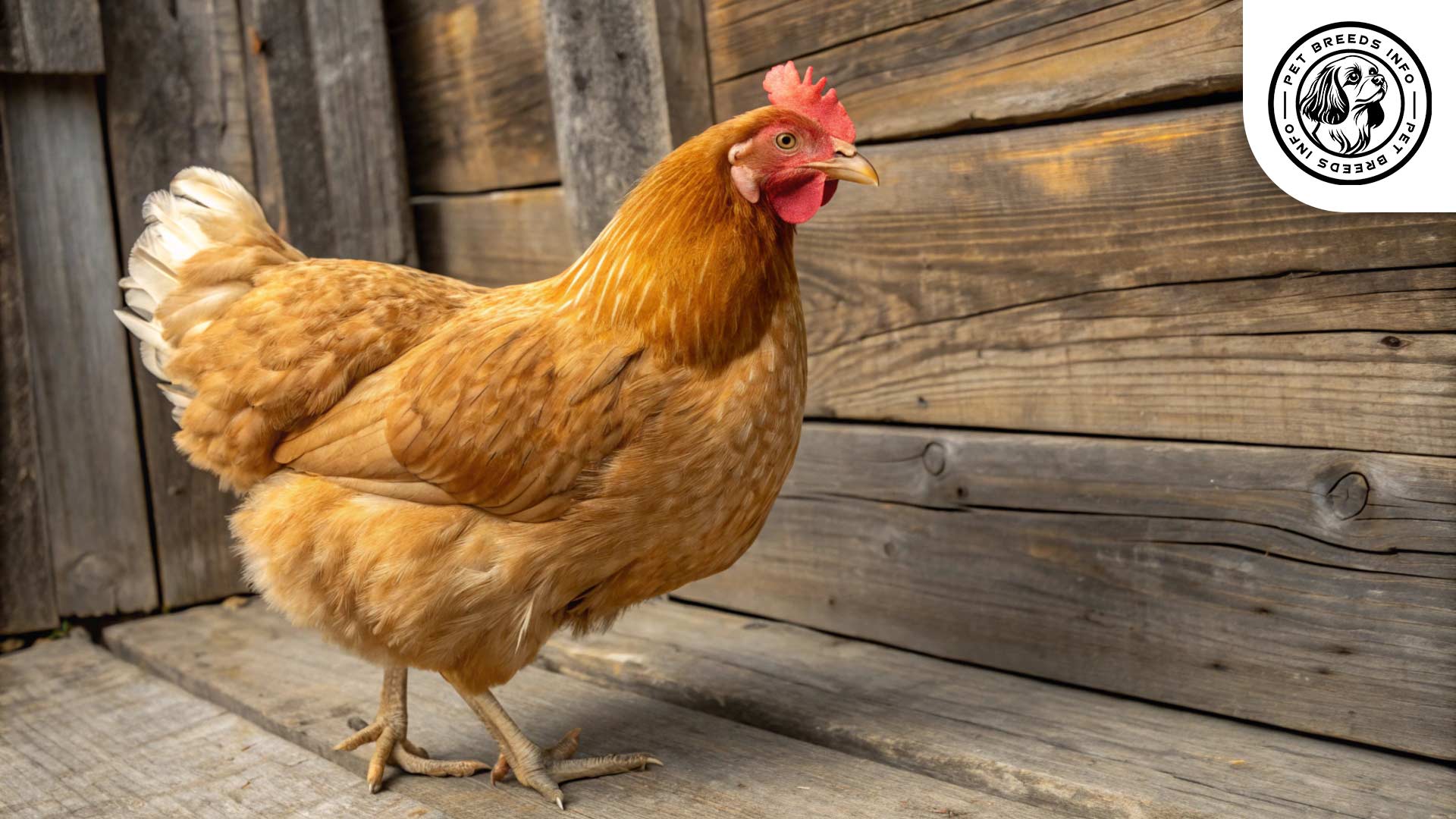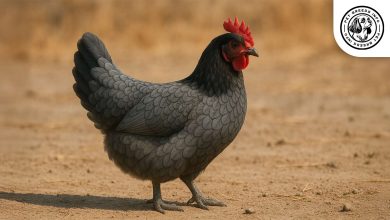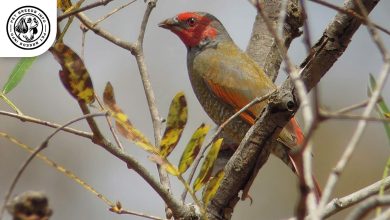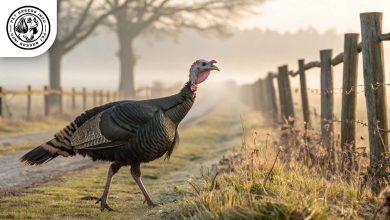New Hampshire Chicken Breed: Personality, Lifespan, Food & Care
General Introduction of the Breed
The New Hampshire Chicken, also known simply as the New Hampshire, is a popular American breed primarily developed for meat and egg production. Originating in the United States, specifically in the state of New Hampshire, this breed was selectively bred in the early 20th century from Rhode Island Reds to enhance rapid growth, early maturity, and efficient egg-laying abilities.
Table of Contents
| Common Name | New Hampshire Chicken |
| Scientific Name | Gallus gallus domesticus |
| Origin | United States (New Hampshire) |
| Size | Roosters: 8.5 lb (3.9 kg), Hens: 6.5 lb (2.9 kg) |
| Lifespan | 5–8 years |
| Primary Purpose | Dual-purpose: meat and egg production |
| Temperament | Calm, friendly, assertive in mixed flocks |
| Cold-Hardy | Yes |
Physical Characteristics
New Hampshire Chickens are medium to large-sized birds. Roosters typically weigh around 8.5 pounds (3.9 kg), while hens weigh approximately 6.5 pounds (2.9 kg). They have a broad and deep body, well-suited for meat production.
Their plumage color is a rich reddish-brown, slightly lighter than the Rhode Island Red. The feathers have a soft texture with a beautiful golden hue in sunlight.
New Hampshire Chickens possess bright red combs, wattles, and earlobes. Their comb is of the single type, standing upright. They have reddish-orange eyes, strong yellow legs, and well-rounded bodies, providing them with a sturdy and robust appearance.
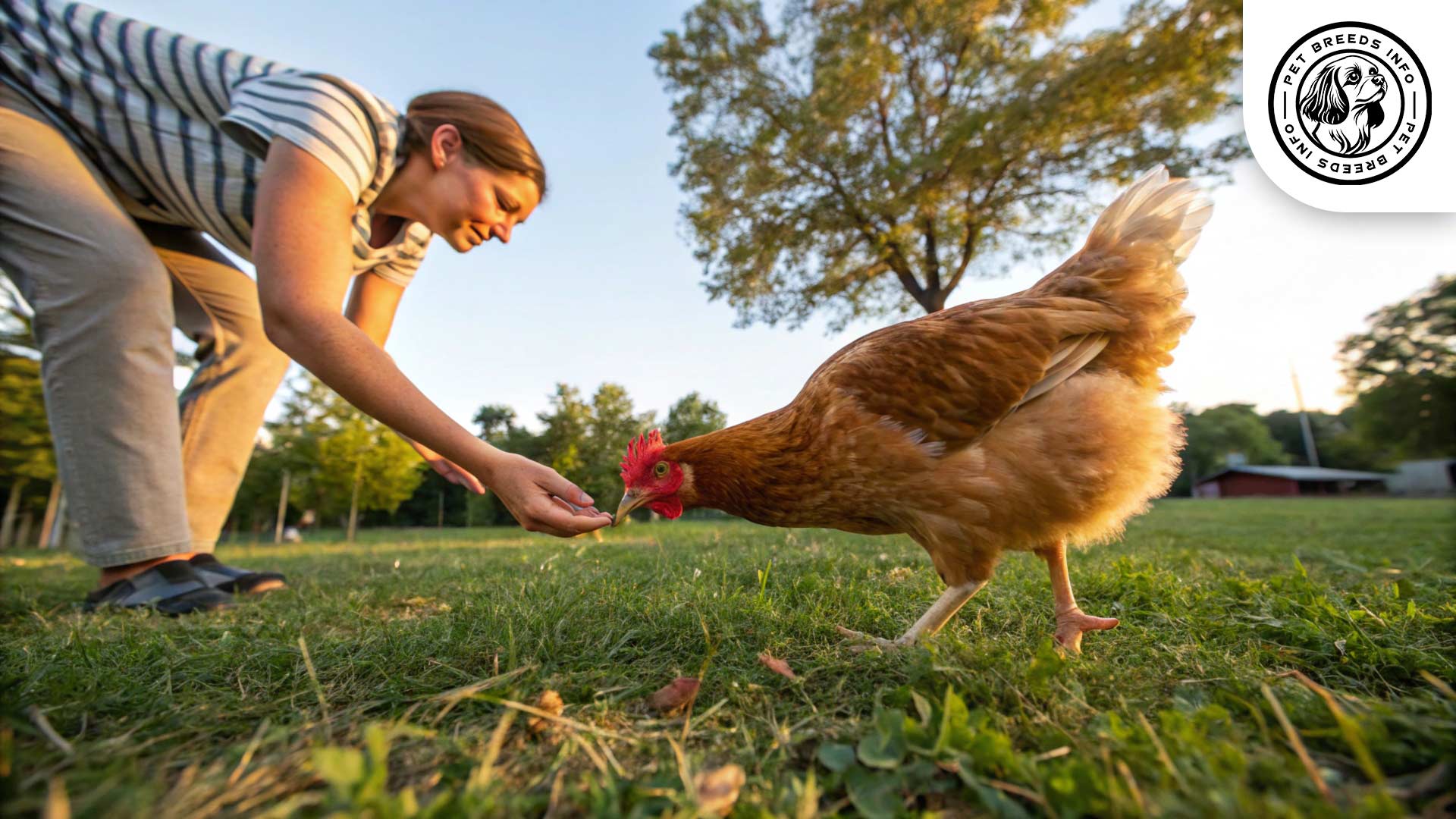
Personality and Temperament
This breed is known for its calm and friendly temperament. New Hampshire Chickens are intelligent and easy to handle, making them an excellent choice for beginners in poultry keeping.
They have moderate energy levels and can be quite active when foraging. However, they are also content in confinement, as long as their needs are met.
They form strong bonds with their owners and can be quite social with humans and other chickens. They are not particularly aggressive but may assert dominance in a mixed flock setting.
They are good egg-layers and exhibit broody behavior, which makes them suitable for hatching and raising chicks.
Read More: Scarlet Macaw Bird
Care and Maintenance Requirements
New Hampshire Chickens require moderate exercise, and they benefit from space to roam and forage. A secure coop with a spacious run is ideal for them.
They can adapt well to various environments, though they prefer moderate climates. They tolerate cold weather better than extreme heat.
The breed has low grooming needs. Regular dust baths help them maintain clean feathers and prevent parasites. Their combs should be checked in winter to prevent frostbite.
Good hygiene practices, including keeping the coop clean, trimming nails if necessary, and checking for pests, are essential for maintaining their health.
Diet and Nutrition
A balanced poultry feed with adequate protein and essential nutrients is best for New Hampshire Chickens. Layer feed should be provided for hens to support egg production.
They enjoy supplementary treats like grains, fruits, vegetables, and occasional protein sources like mealworms.
Foods to avoid include toxic plants, processed human food, and excess salt or sugar.
Providing grit and oyster shells ensures proper digestion and strong eggshell formation.
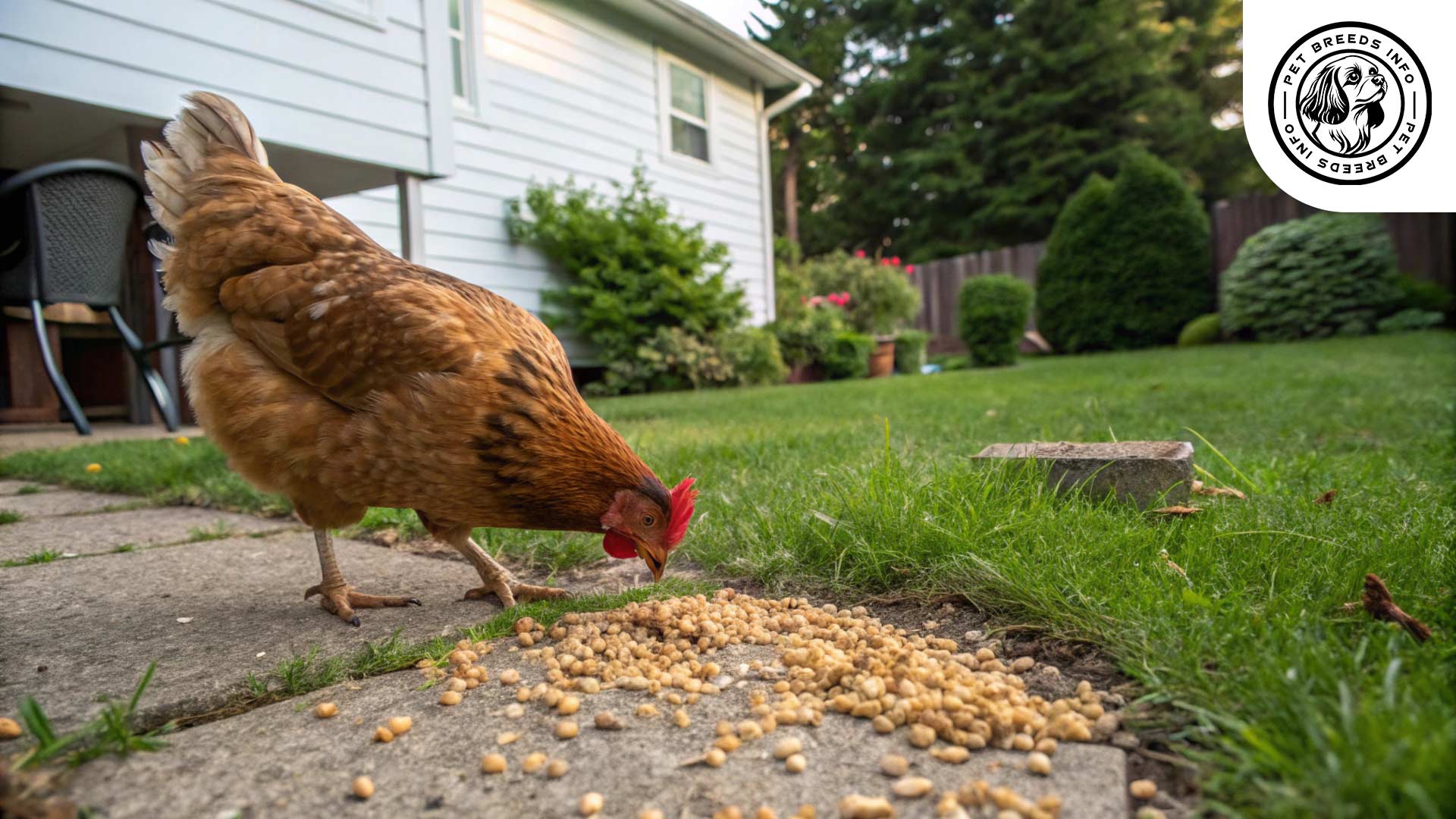
Health and Common Medical Issues
New Hampshire Chickens are generally healthy birds with strong disease resistance. However, they may be prone to common poultry health issues such as respiratory infections, mites, lice, and internal parasites.
Regular health checks, clean housing, and access to fresh food and water help prevent diseases.
Read More: Chinese Swan Goose
The breed has an average lifespan of 5 to 8 years, though some may live longer with proper care.
Regular deworming, vaccinations, and veterinary check-ups ensure optimal health.
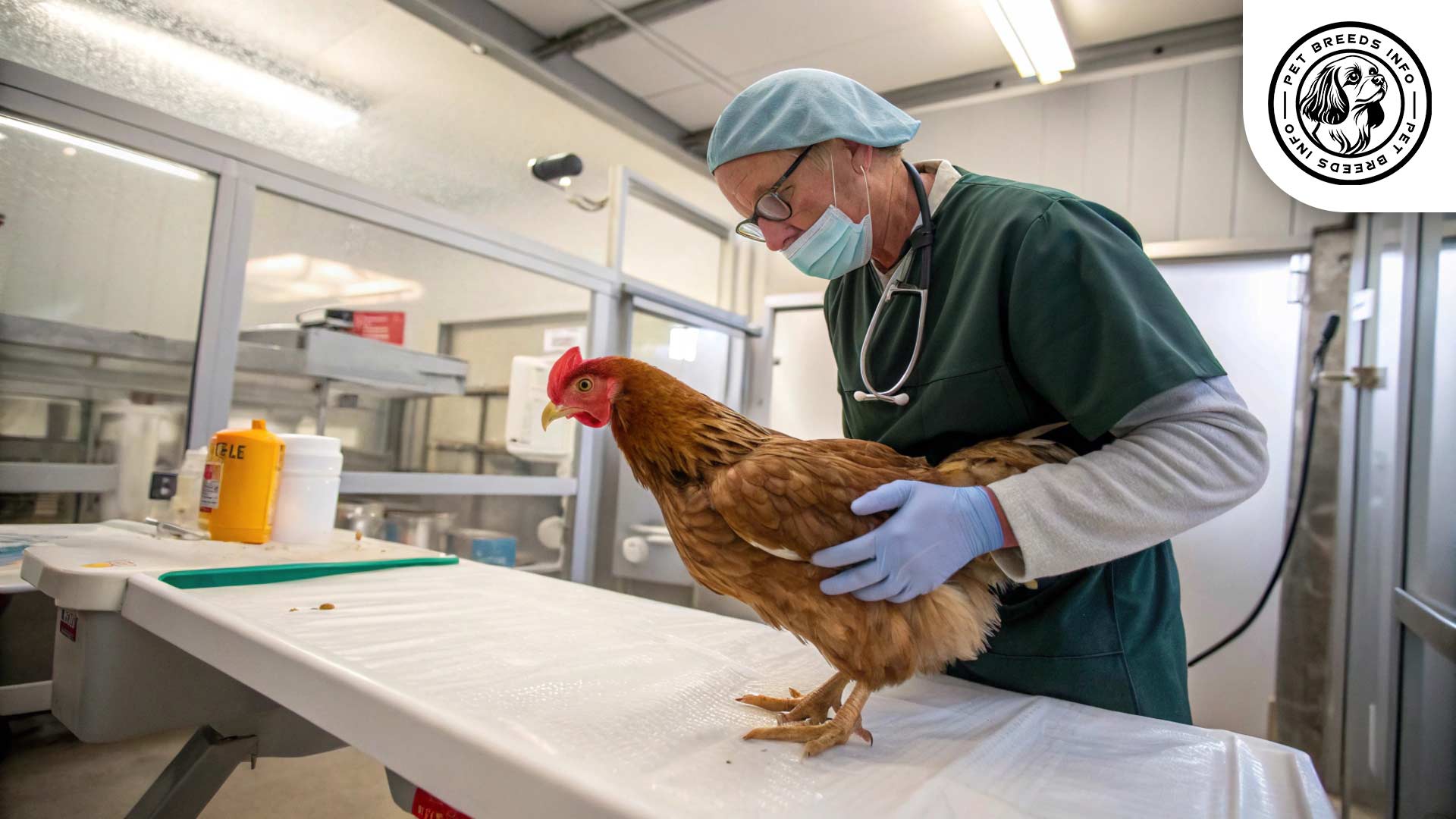
Training and Behavior Management
New Hampshire Chickens are relatively easy to train for basic behaviors such as returning to the coop at night and responding to food cues.
Consistent, gentle handling from a young age helps them become tame and friendly.
Positive reinforcement works well for training, and they can be taught to follow routines with patience.
Interaction with Other Animals and Humans
New Hampshire Chickens are generally friendly with children and enjoy human interaction.
In a mixed flock, they may establish pecking order dominance but usually coexist peacefully with other chickens.
They are adaptable to both family and farm environments and suit both small and large-scale poultry keepers.
They exhibit some level of independence but enjoy attention from their owners.
Price and Availability
The cost of a New Hampshire Chicken varies depending on the seller and location, ranging from $3 to $10 per chick, while adult birds may cost more.
Reputable breeders, commercial hatcheries, and farm stores are the best sources for acquiring healthy chickens.
Potential buyers should look for healthy birds with vibrant plumage, bright eyes, and active behavior.
Read More: Greylag Geese
Conclusion and Final Thoughts
The New Hampshire Chicken is an excellent choice for poultry keepers due to its hardy nature, steady egg production, and friendly personality.
It is well-suited for families, homesteaders, and farmers looking for a dual-purpose breed that thrives in various environments.
Before choosing this breed, prospective owners should consider space availability, climate adaptability, and basic care requirements.
Overall, the New Hampshire Chicken is a reliable and rewarding breed for both beginners and experienced chicken keepers.
FAQ
Are New Hampshire Chickens good egg layers?
Yes, they are steady layers of large brown eggs and may also go broody.
Can they tolerate cold weather?
Yes, they’re cold-hardy but need protection from frostbite on combs.
Do they do well in confinement?
Yes, they adapt well but enjoy free-ranging when space is available.
Are they beginner-friendly?
Absolutely—they’re easy to manage and very docile with humans.
Do they get along with other breeds?
Generally yes, but they may be dominant in the pecking order.
